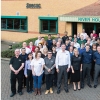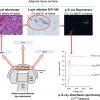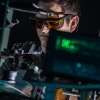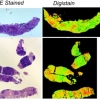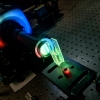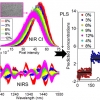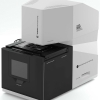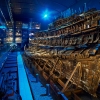Spectroscopy News
Pages
The winner of the 2018 Tomas Hirschfeld Award is Professor Christian Huck.
Playing classical music to crocodiles in a MRI scanner produces patterns similar to those identified in mammals and birds, indicating that fundamental neuronal processing mechanisms of sensory stimuli formed early in evolution.
Applications for this prestigious award are invited by 30 November 2018.
Specac has won the Queen’s Award for International Trade.
A new study using magnetic resonance spectroscopy provides insights into the biochemical mechanisms by which Tai Chi may provide both physical and psychological benefits.
Bruker has acquired Anasys Instruments Corp., maker of the nanoIR products.
McPherson has appointed Titan Electro-Optics as their exclusive agent in China and Hong Kong.
Ghent University have developed a method using infrared spectroscopy to monitor glycation in diabetic patients and provide information on organ damage from diabetes.
Synchrotron analysis using X-ray spectroscopies shows potentially harmful metals from implants can find their way into human organs.
A collaboration between European scientists has demonstrated that removing surface spin defects dramatically reduces the charge noise of quantum devices such as sensors and computers.
Rice University scientists are using snapshot hyperspectral imaging to view a field of plasmonic nanoparticles simultaneously to learn how their differences change their reactivity.
A new mid-infrared imaging technology can be used to grade cancer tumours, eradicating human subjectivity and ensuring patients get the right treatment.
New business unit dedicated to hyperspectral imaging solutions.
An LC-MS/MS method for food allergen testing has received First Action Official Method classification from AOAC International.
Researchers from Nanyang Technological University, Singapore, have developed a new camera technology that could be used to produce extremely compact multispectral cameras.
The final step in pharmaceutical production is often tableting. Near infrared chemical imaging can be used to monitor inconsistencies in the powder that will become the tablet, which have been introduced by mechanical processes in the tableting equipment and can lead to out of specification tablets.
Bruker has acquired IRM2, a developer of high-speed infrared (IR) imaging microscopes based on quantum cascade laser (QCL) technology.
The Bruker MALDI Biotyper has received AOAC International approvals for two Official Methods of Analysis (OMA) in food microbiology; for pathogenic and non-pathogenic bacteria.
A combination of synchrotron techniques at the UK’s Diamond Light Source is being used to research the effect of conservation choices on corrosion of iron cannonballs from the Tudor warship, Mary Rose.





